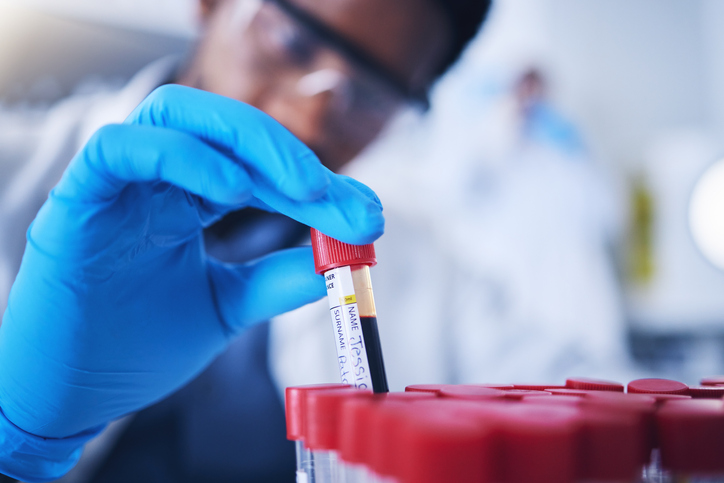
We’ve all been there—sitting in the doctor’s office, waiting for the results of our blood work. It’s a familiar part of taking charge of our health. Yet, what if those numbers held more than just information? What if they could be your tailored roadmap for staying on top of your well-being? Blood work is a personalized key to effective strategies for managing and preventing health concerns. Your healthcare provider will likely order blood tests at an annual health screening visit or to monitor certain medical conditions. Health screenings are designed to identify potential health issues or conditions before symptoms become apparent. These tests and examinations play a crucial role in preventive healthcare, allowing for early detection, intervention, and management of health problems. Common health screenings may include blood pressure measurements, cholesterol checks, mammograms, colonoscopies, Pap smears, and blood tests for conditions such as diabetes. The specific screenings recommended can vary based on factors such as age, gender, family history, and individual health risk factors. It is important to speak to your TopLine MD Alliance affiliated physician about what exams they think would be beneficial given your age and medical history.
What is Being Checked?
When blood is being drawn, it may seem like a lot of blood is being taken, but each adult tube only contains a teaspoon or two of blood. These may also contain chemical additives or anti-clotting agents for various reasons which allow different components in the blood sample to be preserved. It’s crucial to note that certain tests require you to fast, during which you should abstain from eating or drinking (except water) and refrain from smoking or chewing gum for several hours before the test. This precaution, especially for tests involving cholesterol, blood sugar, liver/kidney functions, and a basic metabolic panel, is designed to minimize variables and fluctuations. Some of the basic tests run by physicians include:
- Complete Blood Count (CBC): This checks on the quality and quantity of red and white blood cells, hemoglobin/hematocrit and platelets. CBC tests help physicians look for infections, anemia, leukemia, inflammation and immune disorders and assesses the risk of bleeding or clotting.
- Blood Chemistry Panel: A blood chemistry panel measures glucose, electrolytes, liver enzymes, proteins and kidney function. It also includes a fasting blood sugar test. A level of 99 mg/dL or lower is normal, 100 to 125 mg/dL suggests prediabetes, and 126 mg/dL or higher could indicate diabetes.
- Lipid Panel: Checks cholesterol levels including triglycerides, LDL (“bad”) cholesterol, HDL (“good”) cholesterol, and can be an indicator of heart health.
- Thyroid Function Tests: Thyroid function tests check thyroid gland activity and can help diagnose under or over-active thyroid problems.
- Vitamin Deficiencies: For instance, a vitamin D deficiency can cause symptoms which include fatigue, weakness and depressed mood, and in severe cases can lead to bone disorders such as osteoporosis. A lack of vitamin B12 can cause certain types of anemia and neurological issues. Folate (vitamin B9) deficiency can lead to megaloblastic anemia and can be dangerous during pregnancy because it can cause neural tube defects in the fetus.
- Hormone Levels: Checking hormone levels can help assess reproductive health, menstrual irregularities, as well as hormone deficiencies and excesses.
- Infection Markers: A white blood cell count with differential and C-reactive protein (CRP) can detect the presence of inflammation or infection.
- Diabetes Monitoring: The hemoglobin (Hb) A1C test measures the percentage of red blood cells that have sugar-coated hemoglobin over the previous 3 months. For the HbA1c test to be considered normal, or non-diabetic, the value must be below 5.7 %. An HbA1c value of 5.7 % to 6.4 % is considered prediabetic, while diabetes can be diagnosed if the HbA1c is 6.5% or higher. HbA1c also is used to see if diabetes is under control. The urine albumin/creatinine ratio should also be checked periodically in diabetic patients to look for microscopic damage to the kidneys that can occur over time with diabetes.
- Coronary Artery Disease Monitoring: Monitoring your heart health involves several tests that give insights into the condition of your heart and blood vessels. Tests like total cholesterol, triglycerides, and low-density lipoprotein (LDL) are directly linked to the risk of heart and blood vessel diseases. Conversely, high-density lipoprotein (HDL), the ‘good cholesterol,’ helps lower this risk when its levels are high. There are other important markers when it comes to cardiovascular health as well. Lipoprotein can increase the risk of heart attack and stroke, especially if it runs in your family. Proteins like apolipoprotein B (ApoB), homocysteine (Hcy), and fibrinogen contribute to plaque formation, increasing the risk of heart issues. The ultra-sensitive C-reactive protein (CRP) indicates vascular inflammation, and higher levels can predict a greater risk of heart and blood vessel diseases. Lastly, the atherosclerotic cardiovascular disease (ASCVD) risk score uses various factors to predict a 10-year risk for heart attack and stroke.
Beyond assessing cardiovascular health and blood chemistry, blood tests serve as a comprehensive tool for doctors to evaluate various aspects of an individual’s well-being. Doctors meticulously examine blood samples to detect the presence of infectious diseases and sexually transmitted infections, ensuring prompt intervention and containment. Additionally, they aid in the identification of blood disorders, ensuring timely diagnosis and tailored treatment plans. This multifaceted approach to blood testing allows healthcare providers to dive into more diverse health markers such as:
- Autoimmune Conditions: Rheumatoid Factor (RF) and Anti-Cyclic Citrullinated Peptide (anti-CCP) antibodies test for Rheumatoid arthritis. Antinuclear Antibody (ANA) test is an initial screening test for Systemic Lupus, Sjögren’s, Scleroderma, Polymyositis and Dermatomyositis. Insulin Autoantibodies (IAA) and Glutamic Acid Decarboxylase Antibodies (GADA) can be linked with Type 1 Diabetes. Autoimmune Thyroid Diseases like Hashimoto’s Thyroiditis and Graves’ Disease can be checked by Thyroid Peroxidase Antibody (TPOAb) and Thyroglobulin Antibody (TgAb) tests. Celiac Disease can be tested by checking for Tissue Transglutaminase Antibodies (tTG-IgA).
- Cancer Markers: Some specific markers associated with certain types of cancer can be detected in the blood. Prostate specific antigen (PSA) is a protein made by tissue in the prostate. This important test can aid in screening for prostate cancer in men. For men with average risk, the screening should start at age 50. For higher risk men, the screening could start as early as age 40.
- Infectious Diseases and Sexually Transmitted Infections (STIs): Many infections including Syphilis, Tuberculosis, Malaria, Mononucleosis, Herpes Simplex Virus, Hepatitis B (HBV), Hepatitis C (HCV) and the Human Immunodeficiency Virus (HIV) can be checked through a blood test. Levels of immunity against infections like chicken pox or measles can be measured to determine if a patient may be at risk of getting the disease if exposed. Other STIs, such as Gonorrhea and Chlamydia, may be diagnosed through a urine test or swab.
- Anemia and Blood Disorders: Iron levels, ferritin, and total iron-binding capacity (TIBC) tests, can look at the body’s iron stores and iron utilization. A Hemoglobin Electrophoresis test checks for conditions like sickle cell anemia or thalassemia. The Reticulocyte count gives information about bone marrow function and red blood cell production.
- Medication levels and potential side-effects can be monitored through blood tests: Liver and kidney function tests (LFTs/RFTs) monitor the health of the liver and kidneys and can determine if medications are causing injury to those organs. Therapeutic drug monitoring measures levels of specific drugs to insure they are in the proper range. Your doctor may also run an electrolyte panel to check for off-balance minerals due to medications, such as diuretics affecting sodium and potassium.
Blood tests are vital in studying ongoing health concerns, minimizing risks, and understanding overall well-being. Healthcare providers use the wealth of information from these tests to diagnose issues and to recommend the best treatment. Similar to putting together puzzle pieces to create a clear picture of your health, these tests help both you and your healthcare team make informed decisions for your well-being.
If it’s been more than a year since you’ve had your blood drawn, be sure to reach out to your TopLine MD Alliance affiliated physician to schedule your next appointment.

Dr. Jennifer Romero is a proud member of the TopLine MD Alliance practicing Primary Care in Broward County.
The TopLine MD Alliance is an association of independent physicians and medical practice groups who are committed to providing a higher standard of healthcare services. The members of the TopLine MD Alliance have no legal or financial relationship with one another. The TopLine MD Alliance brand has no formal corporate, financial or legal ties to any of the affiliated physicians or practice groups.



